3 Ways to Use AI in SEO (and Tools That Rock!)
The past year has seen a massive increase in AI adoption by companies worldwide. About half of companies in a May 2024 survey by McKinsey said they were using AI in two or more functions in their organizations, close to a 20% increase over 2023.*
*https://www.mckinsey.com/capabilities/quantumblack/our-insights/the-state-of-ai
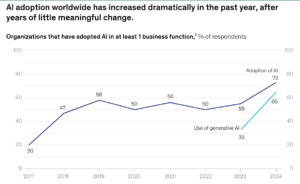
AI is becoming a “must know” for all types of roles, and SEO is no exception. And while AI has much to offer in SEO, knowing where to begin can be overwhelming. The potential uses seem endless, but here are three places to start.
SEO + AI: Research Tools
AI-enabled SEO tools give added insights when you’re researching topics or analyzing a website. They allow you to get a lot more done in the same or less time than usual.
Screaming Frog is perhaps one of the most well-known SEO tools out there. It’s a site crawler that gives you LOADS of technical information, such as broken links, server responses, duplicate content, robots and directives, and site architecture. And when you enable ChatGPT while you crawl, you can do even more, like
- Generating alt text for images
- Analyzing page content’s language, sentiment, or intent
- Scraping specific data
- Extracting embeddings from page content
The possibilities are really endless with these two technologies combined!

Ahrefs is an enterprise SEO tool I use for content and keyword research, site crawls, competitive analysis, and tons more.
The keywords explorer function has AI enabled so that you can find niche topic ideas for just about anything. From there, you can continue drilling down into a specific topic to create truly unique, helpful content. This works in many languages and for any country’s Google search engine.
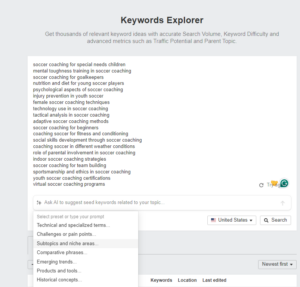
SEO + AI: Content Creation
Gemini has been invaluable to me as I refine ideas. In the fictional example here, I’m asking for differences between content geared towards parents who coach kids’ soccer versus professional soccer coaches. You could use something similar to differentiate content for different audiences of any industry. You could also provide content to Gemini and ask which roles in a company would be most interested in reading that content in order to do accurate audience segmentation.
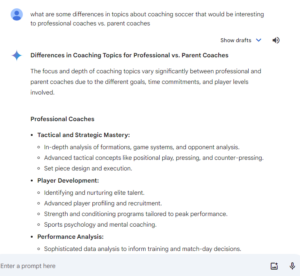
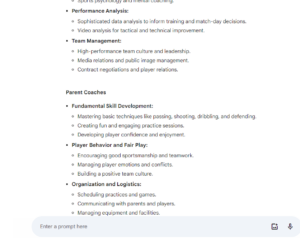
Frase is handy for very quickly analyzing existing web content for a given topic and creating a content brief that includes all the elements needed to rank well and beat the competition. Their keyword research is also brilliant! But the SERP analysis is, for me, the real value. Frase can save you so much time in creating effective briefs for your content team.
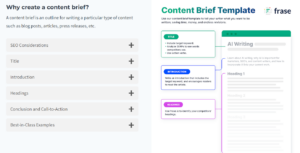
SEO + AI Processes
One of the SEO-related processes that can be done much more quickly with the help of AI is writing good metadata (meta titles and descriptions) and content teasers. While I wouldn’t give AI free reign of this task, I certainly use it to make recommendations that I can then choose from and tweak as needed. Let AI do the heavy lifting!
Claude is one of my colleague Matt’s favorites (and I love it, too) to help with these types of routine SEO processes. The front end does require some work on your part to get rules and expectations in place, but once you do, the time saved is significant.

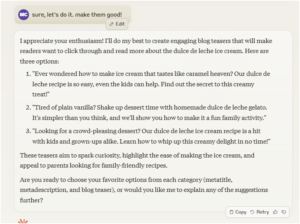
What about you? Have you tried any of these or similar tools in your SEO tasks? I’d love to hear your thoughts in the comments! Remember, don’t be afraid of AI, but also don’t rely on it 100% either. Use it for what it is: a tool that can help you be more efficient.



